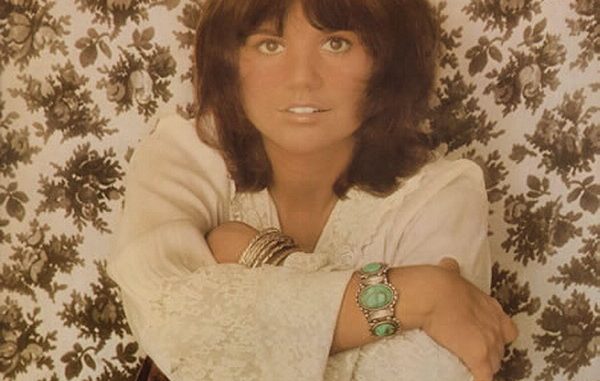
In introducing this new series, Features Editor Clint West said that “this series will explore some of the artists that have laid down the foundations of what we now refer to as ‘americana’”. I think one set of those foundations was laid in the early 70s on the west coast of America, with what came to be called country-rock, and there were few more prominent artists to emerge from that period than Linda Ronstadt. More importantly, she was the first successful female artist fronting a band in this context, pushing through the glass ceiling and opening the way for the countless great female americana artists that have followed her. Women had been successfully fronting country bands for a while but, in the rock world, they were few and far between and, with the emergence of country rock, dominance was coming from bands like The Eagles, Poco, The Allmans, The Flying Burrito Brothers and many more. All great bands but not a woman to be seen. Linda Ronstadt changed all that. At 1.58m (5ft 2”) she was hardly physically commanding but she had a big voice and a stage presence that few could deny. She also had a great talent for finding songs that she could put her own stamp on and for finding the right combination of musicians to give muscle to her arrangements of those songs. It’s certainly arguable that the likes of Emmylou Harris, Lucinda Williams, Mary Chapin Carpenter and Brandi Carlile, to name just a few, would all have broken through eventually, such was their talent – but Ronstadt was the one that first made the public sit up and take notice and made the promoters and record companies realise that female artists in this genre were sellable, and in her case, very sellable, as 24 studio albums and 21 Top 40 singles over the course of her career conclusively proves.
She was born Linda Maria Ronstadt, in Tucson, Arizona, to a father of Mexican and German descent and a mother of German, English and Dutch ancestry; quite a melting pot and one that would have a direct effect on her singing style. She has said that, growing up, she listened to many types of music, including Mexican music, which was sung by her entire family and was a staple in her childhood. The music she sang, be it rock and roll, rhythm and blues, gospel, opera, country, choral, and mariachi – is all music she heard her family sing in their living room or heard played on the radio, during her formative years. She cites her main influences as Hank Williams, Edith Piaf, Ella Fitzgerald, Billy Holliday and Maria Callas. She once said “I learn more about singing rock n roll from listening to Maria Callas records than I ever would from listening to pop music for a month of Sundays”.
Her professional career started at the age of 14, when she formed a folk trio with her brother Peter and sister, Gretchen. Variously known as the Three Ronstadts, the Union City Ramblers and the New Union Ramblers, they played a mix of folk, country, bluegrass and Mexican music around the local coffee houses and other small venues but Linda had loftier ambitions and, in 1964, at the age of 18, she took herself off to Los Angeles, intent on mixing rock and roll with the folk and country she was singing at the time. With a friend from Tucson, Bobby Kimmel, and local singer-songwriter Kenny Edwards, she formed the Stone Poneys and they were signed to Capitol Records in 1966. They are now best known for Ronstadt’s first successful recording – their version of the Mike Nesmith song, ‘Different Drum’, but the trio released three albums during their time with Capitol the last of which, somewhat tellingly, was credited to Linda Ronstadt and The Stone Poneys!

Ronstadt’s first solo album, “Hand Sown…Home Grown” was released in 1969 but the big breakthrough came with her shift to Asylum records and the release of her fourth solo album, 1973’s “Don’t Cry Now”, her first collaboration with British musician and producer, Peter Asher (ex of duo Peter & Gordon and brother of actress Jane Asher); the start of a professional relationship that would define her rise to fame. This album would give her the highest placing of her career to date (45 on the Billboard 200) and gave her successful singles with her versions of The Eagles ‘Desperado’ and the Eric Katz song, ‘Love Has No Pride’. Significantly, it set her up for the most successful period of her entire career. “Don’t Cry Now” stayed on the charts for over a year and achieved Gold Record status. The follow up, 1974’s “Heart Like A Wheel” would take the number one spot on both the Rock/Pop and Country charts in the States and achieve double platinum sales figures. The lead single, her version of ‘You’re No Good’ went to number 1 on the Billboard Hot 100 and her version of Hank Williams’ ‘I Can’t Help It If I’m Still in Love With You’ was voted ‘Best Country Vocal Performance, Female’ at the 1976 Grammys. In 2013 the Library of Congress inducted “Heart Like A Wheel” into America’s National Recording Registry. This was the start of Ronstadt’s dominance of L.A’s country/rock scene. “Prisoner In Disguise”, “Hasten Down the Wind”, “Simple Dreams”, “Living in the USA”, all achieved Top 5 album status and all achieved Platinum Records. In the latter part of the seventies, she also became acknowledged as “the first female arena class country/rock star”, setting records as one of the top grossing performers of the decade. Even into the 80s, when she started to move away from her signature country/rock sound and into pop and then American classics she continued to achieve significant record sales and still found time to pursue the Trio recording projects with Dolly Parton and Emmylou Harris, both of which had become close personal friends by this point. Sadly, in 2012, she was diagnosed with Parkinson’s disease, since re-evaluated as progressive supranuclear palsy, a very similar debilitating disease which means that her once powerhouse singing voice is all but completely lost. She has been retired from performing and recording since 2011, soon after she first noticed that her voice was fading.
Ronstadt was never much of a songwriter and I believe that has coloured peoples’ opinions of her as a groundbreaker in americana, but her ability to take songs as diverse as The Everly Brothers’ paeon to teenage angst, ‘When Will I Be Loved’ and something like Little Feat’s truck driving anthem ‘Willin” and make them her own showed that, while she may not write a lot of songs, she certainly knew how to inhabit and deliver them. She set a template that many female performers follow to this day in forging her own path in a very male-dominated business. It’s also worth noting that she never lost sight of who she was and the importance of her ancestry to her success and she did much to promote Mexican culture and the Spanish language, so much so that she was awarded the Latin Grammy Lifetime Achievement Award by the Latin Recording Academy in 2011, five years before she received the more general Grammy Lifetime Achievement Award. She was also inducted into the Rock and Roll Hall of Fame in 2014 and received a Kennedy Centre Honour for Lifetime Artistic Achievements in 2019. You would almost need a separate article to list all her many, many awards and honours. She has collaborated widely and can be heard on over 120 different albums and she herself has sold over 100 million records. When it comes to Americana Bedrock, Linda Ronstadt is one of the precious stones.


